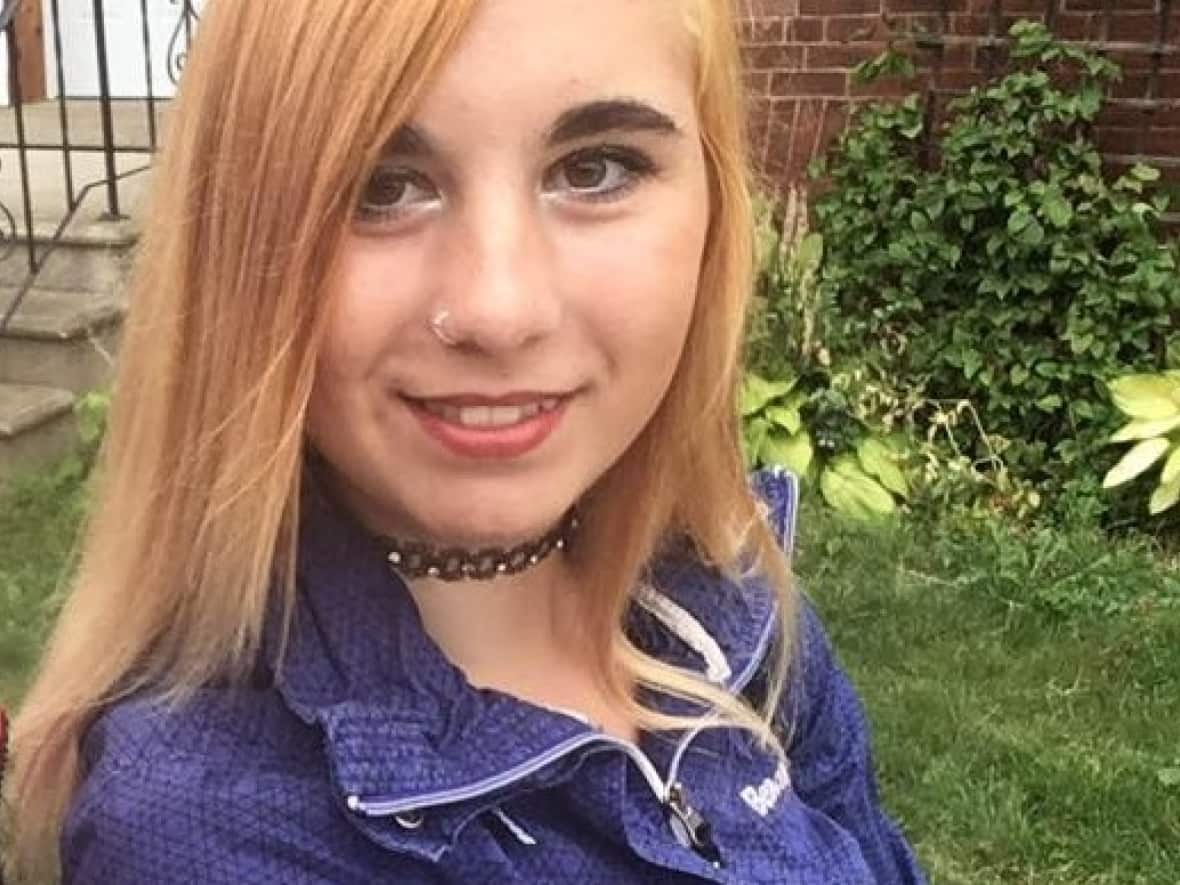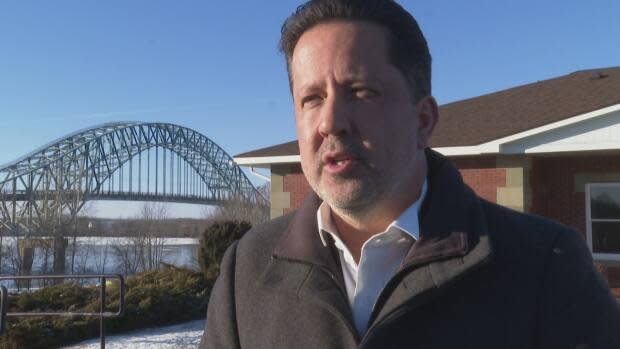1st-degree murder trial ends abruptly after accused pleads guilty to lesser charge

The first-degree murder trial of Angela Walsh ended abruptly Wednesday after a key witness took chief responsibility for killing Clarke Ernest Greene in Fredericton — testimony that gave Walsh the chance to plead guilty to second-degree murder.
Angela April Walsh was on the second day of her trial in New Brunswick Court of King's Bench for the first-degree murder of Clarke Ernest Greene on April 15, 2020.
But on Wednesday afternoon, Justice Kathryn Gregory dismissed the 12 jurors after Walsh chose to plead guilty to the lesser charge of second-degree murder.
Walsh and Zachary Murphy had been jointly charged with the murder of Greene, whose body was found near a gazebo in Wilmot Park in Fredericton.
Murphy, who was 20 when he was charged, pleaded guilty in November 2021 to second-degree murder.
Walsh, who was 21 when charged, was scheduled to have a three-week trial, which began on Tuesday after jury selection on Monday.
However, New Brunswick deputy attorney general Michael Comeau agreed to let Walsh plead guilty to the lesser charge, following testimony Wednesday morning from Murphy.
Murphy, who was supposed to be a key Crown witness in the trial, gave testimony that contradicted what Crown prosecutor Darlene Blunston had told jurors they'd hear him say.
Earlier in the trial, Blunston said jurors could expect to hear testimony from Murphy that would prove that Walsh was the "mastermind behind this murder," which she got Murphy involved in under the pretence they would only rob the 31-year-old Greene.
"I expect Murphy will tell you that Walsh gave him a nod, and he hit Greene with a pipe," Blunston said in her opening argument on Tuesday. "He hit him once and twice to make sure he was out.
"I expect he will then tell you that as he was going through Greene's book bag, he didn't see Walsh for a time, but then all of a sudden [Walsh] was on top of Greene stabbing him in the chest and eyes with a knife."
On Wednesday, however, Murphy testified that he hit Greene with a pipe, but that it was he who stabbed Greene, all while not knowing where Walsh was.
The trial broke for lunch after his testimony, and when it reconvened at about 2 p.m., Gregory announced that she'd received consent from the Office of the Attorney General following an agreement by both parties to let Walsh plea guilty to second-degree murder.
Gregory had Walsh formally enter her plea, and following that, Blunston read out a statement of facts, describing how Walsh arranged to meet Greene at Wilmot Park, and that when he arrived, Murphy hit him with a pipe, followed by Walsh stabbing him in the chest and face.
Gregory then convicted Walsh of second-degree murder but reserved sentencing until May 11, to give Greene's family more time to prepare victim impact statements.
Murphy was the last of eight witnesses called to testify before the trial ended.
Co-accused's account
Murphy testified he had known Walsh for at least two years leading up to Greene's homicide, and they had been in an off-and-on relationship for that time.
Murphy testified he and Walsh had been living together in a rooming house on Kings College Road in Fredericton at the time of Greene's murder.
On the night of April 14, 2020, Murphy said Walsh asked him to go down to the gazebo at Wilmot Park with her to meet a friend, who Murphy said he later learned was Greene.
Murphy testified he went with Walsh, but the two of them separated during the walk to their park.

He arrived at the gazebo on his own, he said, and shortly after, saw Walsh and Greene approaching on foot.
Murphy said he saw Greene kiss Walsh, which made him angry.
He said he moved away from the gazebo and watched as Greene and Walsh approached the gazebo and sat down to drink beer on the steps.
Murphy testified this is when he came up behind Greene and hit him with a metal vacuum tube he'd taken with him that night for protection.
He then stood over Greene for "a minute" contemplating what he'd just done.
Murphy said Greene then knocked him to the ground and a struggle ensued between the two.
"Then next thing I know is me and him start fighting, and I saw his hand go to his pocket, so I struck him some more and his knife fell out, and next thing I know was Clark's dead on the ground," Murphy said.
Asked repeatedly by Blunston where Walsh was while he stabbed Greene, Murphy testified he didn't know.
'Remarkable' change in testimony
Lawyer TJ Burke, who represented Walsh, said he was shocked by the testimony Murphy gave, as it contradicted what he told police and what he said during a preliminary inquiry into the murder.
"It was quite remarkable because this is the first time in 21 years of practising criminal defence work I've ever seen a Crown witness get up and do a 180-degree, complete recantation, and take full responsibility of a murder," Burke said.

"I was a little shocked, to be honest with you. And I know that the Crown was shocked as well too, because it put them in a precarious situation."
Blunston declined to comment on the outcome of the case.
Asked whether Murphy's testimony could have helped Walsh be found not guilty of first-degree murder, Burke said this would have been unlikely since Walsh had earlier provided police with evidence that demonstrated her culpability in the murder.
However, while evidence showed she was culpable in the murder, Burke there was no evidence it was premeditated, which is a key bar that must be met to prove guilt of first-degree murder.
Earlier parole eligibility possible
He said a guilty plea to second-degree murder eliminates the possibility of Walsh facing a first-degree murder conviction, which carries a sentence of life in prison with no parole eligibility for at least 25 years.
Burke said Murphy was given a life sentence, with eligibility for parole after 12 years.
With her conviction on second-degree murder, he said, Walsh still faces a life sentence but could be eligible for parole in as little as 10 years, depending on what Gregory decides at sentencing.
"This is a win for Miss Walsh," Burke said. "There's no question about it, because if she was convicted of first-degree murder she would have been doing hard time."


